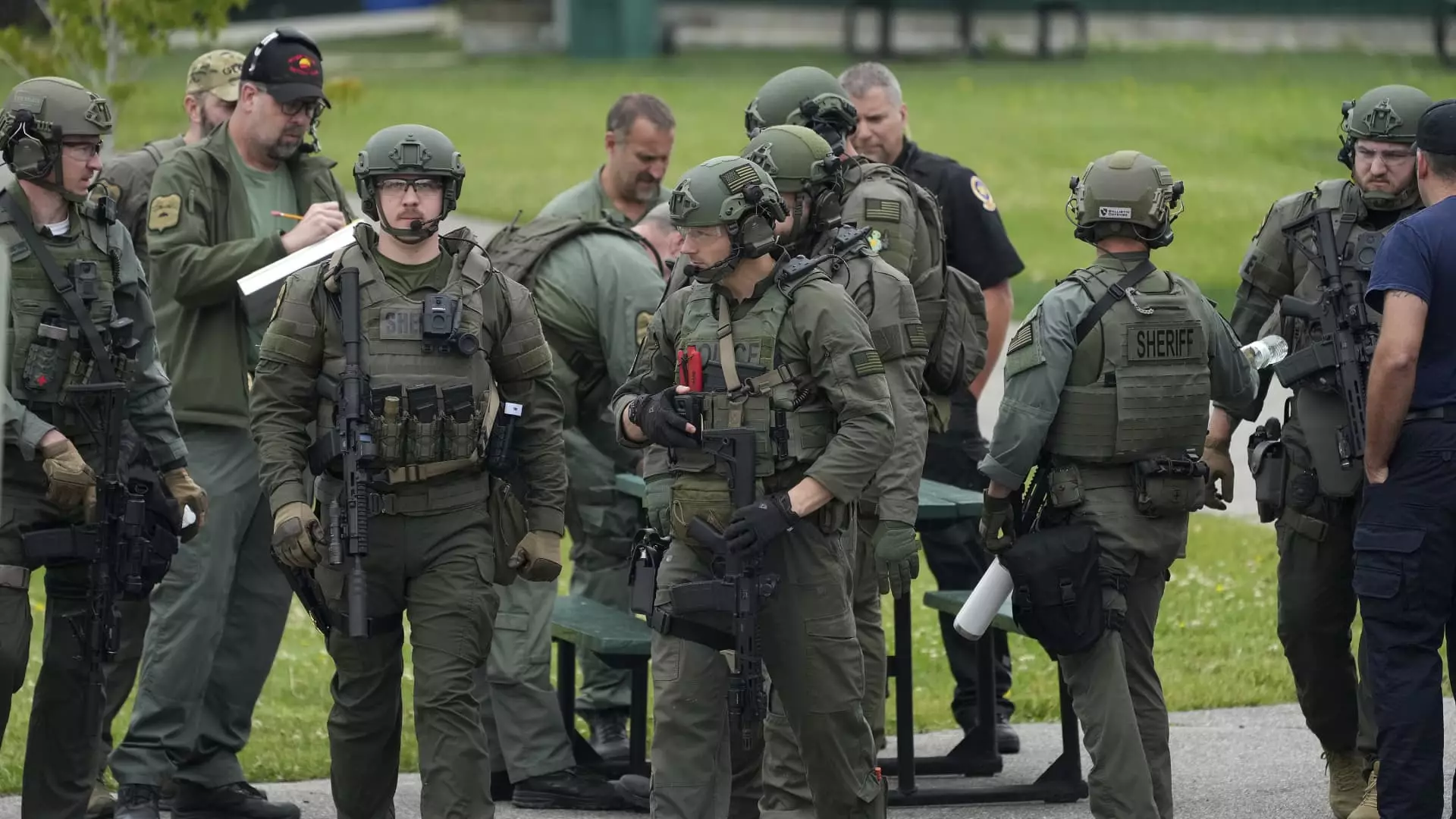The recent assassination of Minnesota Democratic state Rep. Melissa Hortman and her husband, Mark, represents not just a senseless act of violence but a glaring indicator of how deeply fractured political discourse has become in America. A man, Vance Luther Boelter, armed with a weapon and a chilling list of potential targets, brazenly masqueraded as an authority figure to carry out this gruesome attack. As members of both political parties mourn the loss of a respected public servant, the implications of this incident echo through the veins of our democracy. We are now forced to confront a stark reality: our political climate has now reached a boiling point where such acts of violence are a chilling possibility.
The Atmosphere of Fear and Insecurity
With the gunman still at large, Minnesota has descended into a state of anxiety, reflecting a nation grappling with the troubling patterns of political violence. The fear is palpable among lawmakers and citizens alike, as Democratic Senator Amy Klobuchar articulated on a recent “Meet the Press” episode. She highlighted the danger posed not only to elected officials but to the very fabric of public trust in our institutions. This apprehension culminates in an unsettling societal atmosphere where individuals, already polarized by rhetoric, now face the haunting prospect of targeted violence. The reality is that when political figures can be hunted down, the very essence of democracy is placed in peril.
Political Responsibility and the Role of Leadership
The condemnation of this heinous act from both sides of the political spectrum is a crucial step, yet it begs the question of responsibility. Are leaders doing enough to address the underlying toxicity in our political dialogue? While President Trump’s declaration that “such horrific violence will not be tolerated” resonates, it also rings somewhat hollow without substantial action to counteract the rampant hate and division exacerbated by political rhetoric. We cannot afford to merely offer thoughts and prayers. Leaders must undertake meaningful dialogue aimed at de-escalation and healing—talking about “unity” is not enough in a world increasingly marked by division.
Time for Change: Our Political and Social Landscape
After this devastating event, we must ask ourselves what kind of political environment we want to cultivate in America. It is imperative for us as citizens to demand that public discourse be recalibrated toward respect and empathy, rather than hostility and aggression. The tragic loss of Rep. Hortman should serve as a catalyst for deep reflection on how our political institutions can evolve to foster a more hopeful and inclusive ethos. Change is not just in the hands of politicians; it exists within each of us, as we choose to engage in dialogue that elevates dignity over vitriol.
Ultimately, the assassination of a respected public servant should not fade into a statistic but ignite a movement toward restoring faith in democratic values. To honor the legacy of figures like Hortman, we must prioritize solidarity while actively denouncing violence in any form. There is no time to waste; the stakes have never been higher. The heart of democracy hangs in the balance, and we must act decisively to ensure its survival.


Leave a Reply